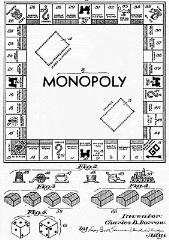 It should be pretty clear at this point that our patent system is broken. It’s been designed to foster innovation, but is nowadays stifling it. It’s supposed to protect inventors, but instead threatens innovators. Patent trolls are extorting billions of dollars from our top tech companies, and are threatening to do the same to small businesses and individuals. Meanwhile, big corporations amass enormous patent portfolios that they use as currency, with contents so vague that they can be used to attack their smaller competitors before they even start: if you want to start a small technological business today, don’t do a patent search: you are going to find patents broad enough to cover your innovation, and you may have to give up for fear of litigation that would kill you from the legal fees alone.
It should be pretty clear at this point that our patent system is broken. It’s been designed to foster innovation, but is nowadays stifling it. It’s supposed to protect inventors, but instead threatens innovators. Patent trolls are extorting billions of dollars from our top tech companies, and are threatening to do the same to small businesses and individuals. Meanwhile, big corporations amass enormous patent portfolios that they use as currency, with contents so vague that they can be used to attack their smaller competitors before they even start: if you want to start a small technological business today, don’t do a patent search: you are going to find patents broad enough to cover your innovation, and you may have to give up for fear of litigation that would kill you from the legal fees alone.
There is a lot of debate about fighting patent trolls. The solution is probably multiple. I may have an original idea however to protect small businesses, that are more innovative than large ones, and against which the balance is today grossly tipped.
What if companies below a certain size (that are not owned by companies above that size), could be exempt of any patent litigation at all? This would eliminate altogether the threat against small innovators and inventors.
But what about big corporations? Wouldn’t they be harmed by swarms of unfair parasites that would only be living off their innovations? That’s unlikely, as no small business can rival the firepower of larger companies. They cannot benefit from the same economies of scale, and they can’t advertise as well. To do well and survive, they will have to innovate on top of whatever invention they would have “borrowed”. They have no other choice. They will also have to move fast.
Such a model, of course, is very close to what open source businesses are already doing. The difference is that the very real threat of patent litigation would disappear. Many businesses ignore it and try to stay under the radar, or donate their intellectual property to foundations that act as legal lightning rods. They wouldn’t need to do that if such a proposal got applied.
What do you think? Is this even possible? Would it work?